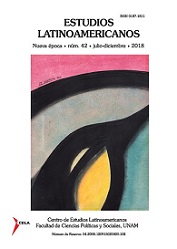Distopías en la cocina: un análisis de los orígenes de la puertorriqueñidad a través del discurso culinario en las Crónicas de Indias
Contenido principal del artículo
Resumen
Cuando nos remontamos a la tradición de las Crónicas de Indias abrimos las puertas a un pasado donde la imposición de los ideales eurocéntricos muestra cómo el coloniaje tomó control de la vida diaria en todos los niveles, trasplantando viejos esquemas en este nuevo y a veces “exótico” espacio de las Américas. En Puerto Rico, muchos aspectos de la “vieja” y la “nueva” cultura chocarían, múltiples ideas serían refutadas, despreciadas, otras se esfumarían,
muchas quedarían en el silencio del derrotado, mientras que otras se transformarían y se asimilarían para dar paso a lo que eventualmente se revelaría como los indicios de la idea de una identidad propia. Siguiendo el caso de los Cronistas de Indias y su manifestación literaria que surge de la experiencia en la vida diaria en la Isla de San Juan Bautista, nos aproximamos a esa distopía de la idea de lo puertorriqueño visto desde el discurso culinario durante el régimen español. Estudiamos secciones del controversial Diario de Colón, además de inmiscuirnos en las letras de Fray Bartolomé de las Casas, Gonzalo Fernández de Oviedo, Fray Damián López de Haro y Fray Íñigo Abbad y Lasierra. Se considera la gran paradoja literaria donde la retórica gastronómica es clave para entender la distopía que se devela en la lectura de los textos de estos cronistas, mientras al mismo tiempo son cruciales elementos de propaganda donde se trata de clamar un sentido de normalidad en el aparente mundo de caos del salvaje noble.
Descargas
Detalles del artículo
Citas en Dimensions Service
Citas
ABBAD y LASIERRA, Íñigo (1866), Historia geográfica, civil y natural de la isla de San Juan Bautista de Puerto-Rico, Puerto Rico, Imprenta y librería de Acosta, archivo referido de la Biblioteca del Congreso. Dirección URL: <https://www.loc.gov/item/03006061/>, [consulta: 10 de enero de 2017].
BABÍN, María Teresa (1958), Panorama de la Cultura Puertorriqueña, San Juan, Puerto Rico, Instituto de cultura puertorriqueña.
BAKHTIN, Mikhail (1984), Rabelais and His World, Indiana, Indiana University Press, traducido por Hélène Iswolsky.
BARTOSIK-VÉLEZ, Elise (2002), “The Three Rhetorical Strategies of Christopher Columbus”, en Colonial Latin American Review, 11/1.
BELK, Russell W. (1995), “Studies in the New Consumer Behavior”, en Daniel MILLER (editor), Acknowledging Consumption, New York, Routledge.
BENÍTEZ ROJO, Antonio (1998), La isla que se repite, Barcelona, Editorial Casiopea.
BIASIN, Gian Paolo (1993), “Introduction”, en The Flavors of Modernity: Food and the Novel, New Jersey, Princeton University Press.
COLÓN, Cristóbal (2006), “Relaciones y Cartas de Cristóbal Colón”, en Cervantes Virtual. Dirección URL: <http://www.cervantesvirtual.com/obra/relaciones-ycartas-de-cristobal-colon—0/>, [consulta: 20 de enero de 2017].
DE LAS CASAS, Fray Bartolomé (2006), “Libro I: Capítulo CLXIV”, en José Miguel MARTÍNEZ TORREJÓN (editor), Historia de las Indias, Alicante, Biblioteca Virtual Miguel de Cervantes. Dirección URL: <http://www.cervantesvirtual.com/servlet/SirveObras/02586281999194239932268/p0000001.htm#I_13>, [consulta: 10 de enero de 2017].
DOUGLAS, Mary (1997), “Deciphering a Meal”, en Carole M. COUNIHAN and Penny VAN ESTERIK (editors), Food and Culture: A Reader, New York, Routledge.
FERNÁNDEZ DE OVIEDO, Gonzalo (1950), “Sumario de la Natural Historia de las Indias”, en Pedro HENRÍQUEZ UREÑA (editor), Cronistas de Indias, México, Biblioteca Americana.
GLISSANT, Edouard (1989), Caribbean Discourse: Selected Essays, Charlottesville, University Press of Virginia, traducido por J. Michael Dash.
LÓPEZ ADORNO, Pedro (1996), “Descolonización literaria y Utopía: el caso puertorriqueño”, en Exégesis, 9/25.
LÓPEZ DE HARO, Fray Damián (1982), “Carta que envió a Juan Díaz de la Calle”, en Josefina RIVERA DE ÁLVAREZ y Manuel ÁLVAREZ NAZARIO (editores), Antología general de la literatura puertorriqueña: prosa, verso, teatro, Madrid, Ediciones Partenón, S. A., vol. 1.
MÁRQUEZ, Roberto (2005), “A Controversy of Poets: Translations by Roberto Márquez”, en Centro Journal, 17/1. Dirección URL: <http://www.redalyc.org/pdf/377/37717108.pdf>, [consulta: 30 de enero de 2017].
MEAD, Margaret (1997), “The Changing Significance of Food”, en Carole M. COUNIHAN and Penny VAN ESTERIK (editors), Food and Culture: A Reader, New York, Routledge.
MINTZ, Sidney (2002), “The Anthropology of Food and Eating”, en Annual Review of Anthropology, 31/1.
MINTZ, Sidney (2008), “Time, Sugar, and Sweetness”, en Carole M. COUNIHAN and Penny VAN ESTERIK (editors), Food and Culture: A Reader, New York, Routledge.
MYERS, Kathleen A. (1990), “History, Truth and Dialogue: Fernández de Oviedo’s Historia general y natural de las Indias (Book XXXIII, Chapter LIV)”, en Hispania: A Journal Devoted to the Teaching of Spanish and Portuguese, 73/3.
RAMA, Ángel (1998), La ciudad letrada, Montevideo, Arca.
RAWSON, Claude (1999), “Unspeakable Rites: Cultural Reticence and the Cannibal Question”, en Social Research, 66/1.
RETAMAL, Christian (2016), “Distopía y nihilismo. De la utopía como tiempo de la esperanza a la distopía como el tiempo del fin”, en XIV Coloquio Internacional de Geocrítica: Las utopías y la construcción de la sociedad del futuro, Barcelona, Universidad de Barcelona/Geocrítica, 2 al 7 de mayo. Dirección URL: <http://www.ub.edu/geocrit/xiv_christianretamal.pdf>, [consulta: 30 de enero de 2017].
RUANO, Argimiro (1998), El pensamiento puertorriqueño, Quebradillas, Talleres Gráficos, vol. 1.
WILLIAMS, Raymond (1983), “Consumer”, en Keywords: A Vocabulary of Culture and Society, New York, Oxford University Press.

Este obra está bajo una licencia de Creative Commons Reconocimiento-NoComercial-SinObraDerivada 4.0 Internacional.

